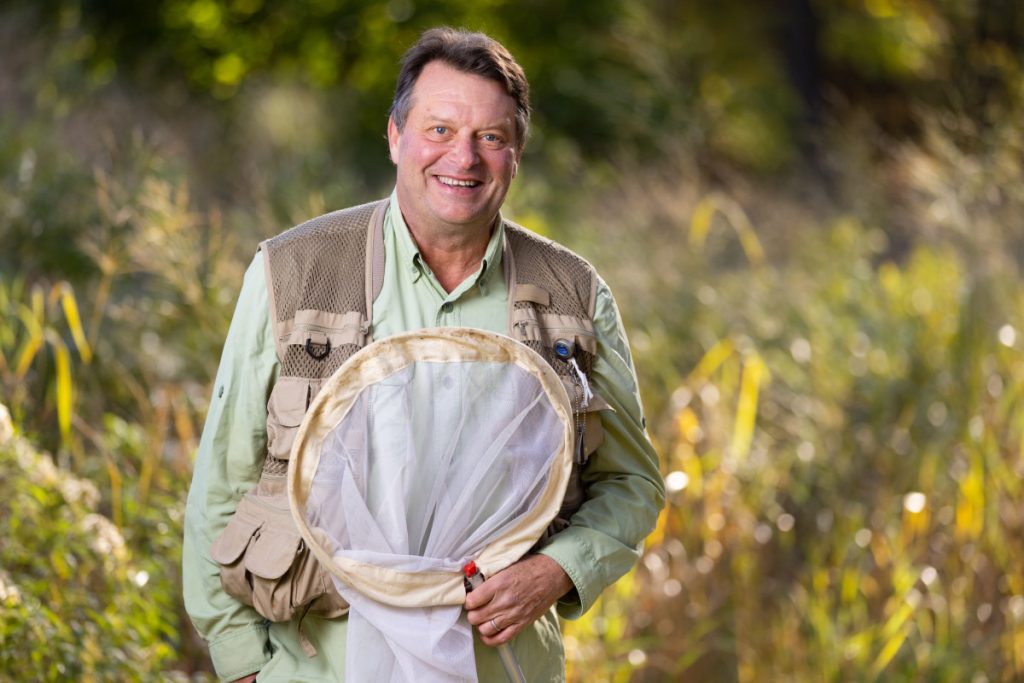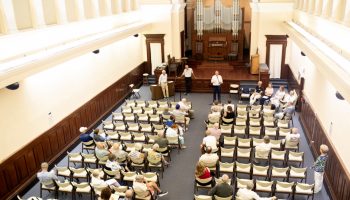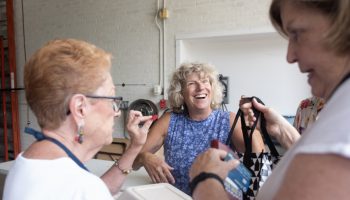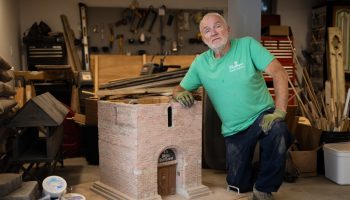Chautauqua’s natural landscape comes not just from the green thumbs of the Bird, Tree & Garden Club, but also from ecological exploration of tropical areas in the 17th century.
At 12:15 p.m. Tuesday, July 5, in Smith Wilkes Hall, John Wenzel will teach Chautauquans about how early exploration in the tropics informed the ecology and entomology of the early Western world in his lecture “Beyond the Waterfall: Seeking Meaning from Nature in the Tropics.” This will be BTG’s second Brown Bag lecture of the 2022 season.

Wenzel says this talk is designed for all Chautauquans, and he welcomes all those with and without knowledge in biology and zoology. He especially encourages those unfamiliar with entomology and ecology to attend his lecture.
“It’s a review of how people’s interest in nature and man’s relationship with nature changed our Western civilizations, mostly in the 17th, 18th and 19th centuries,” Wenzel said.
Prior to being named executive director for Conemaugh Valley Conservancy this year, Wenzel had been the director of the Ohio State University Museum of Biological Diversity and director of the Powdermill Nature Reserve at Carnegie Museum of Natural History.
The beginning of Wenzel’s career in entomology started at 19 years old in Panama with mentor entomologist and sociobiologist E. O. Wilson. During his field work, Wenzel realized the importance of studying tropical ecology and insects to make better sense of the United States’ natural world.
“In some ways, when people think about how we got to where we are, the history lesson of who we are and how we got here, I think they overlook this colonial period,” Wenzel said. “It’s an interesting contrast, if you consider what people give themselves credit for in their current culture and civilization, and yet a lot of that was imported from far away.”
Wenzel’s tropical travels are extensive, completing research in over 20 countries, including Costa Rica and Peru.
This will be Wenzel’s fourth season at Chautauqua, having previously given BTG talks on firefly “flashing” communication. He advocates for the recognition of insects’ influence on the environment.
“Because insects are small, people tend to think that they’re insignificant,” Wenzel said. “But that’s really not true. Insects drive a lot of the ecosystem and it is important for us to understand and recognize their role.”
In his lecture, Wenzel plans to show classical paintings from the 18th and 19th centuries depicting notable naturalists from Britain and France. He will then discuss how those explorers populated the developing West with botanics and insects from the tropics.
While his talk focuses on the tropics, Wenzel believes in the importance of examining local areas for historical ecology and entomology, as well.
“I encourage my students to go to the tropics and witness the tropics, but I also encourage them to see if they could do most of their research up here near home in the temperate zone,” Wenzel said. “There’s some real advantages to working in a place that’s convenient and well known. … The thrill is that you can discover something that’s (helpful) to research in the tropics.”




